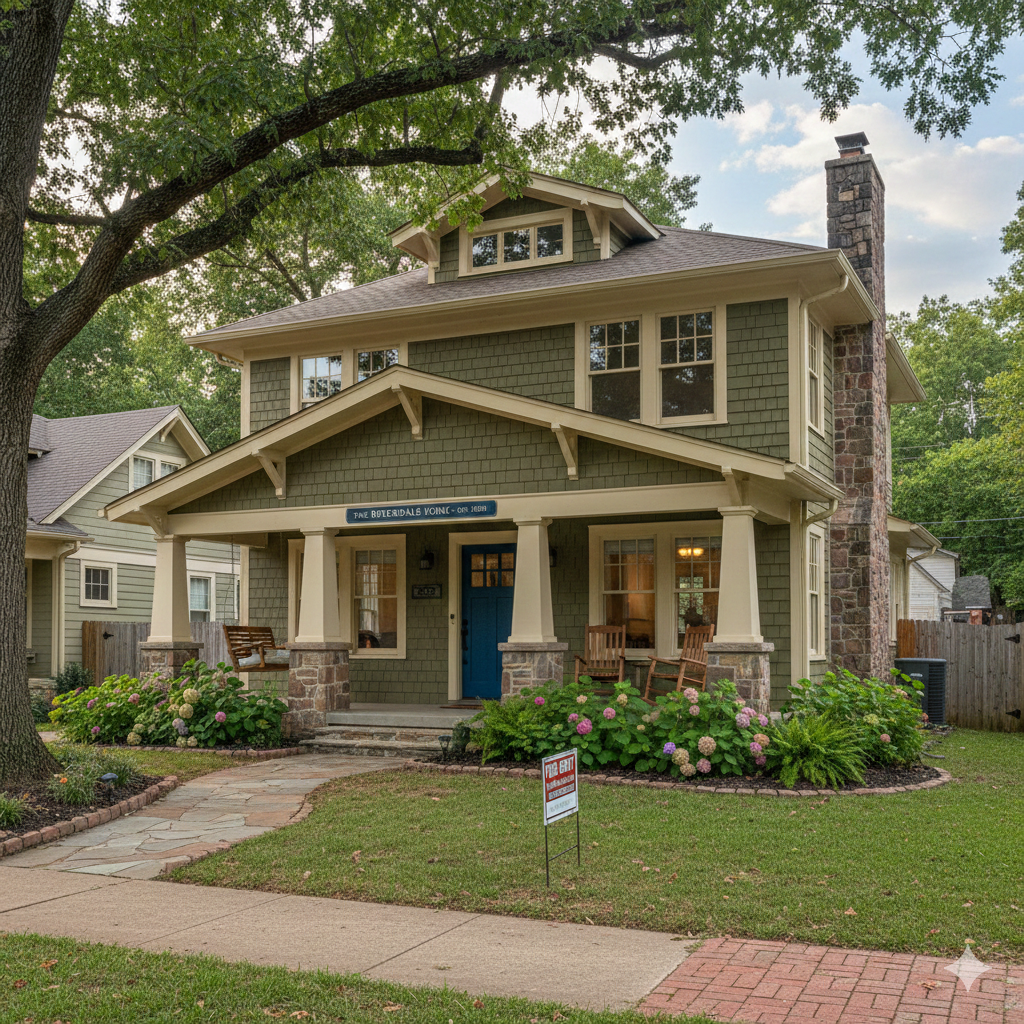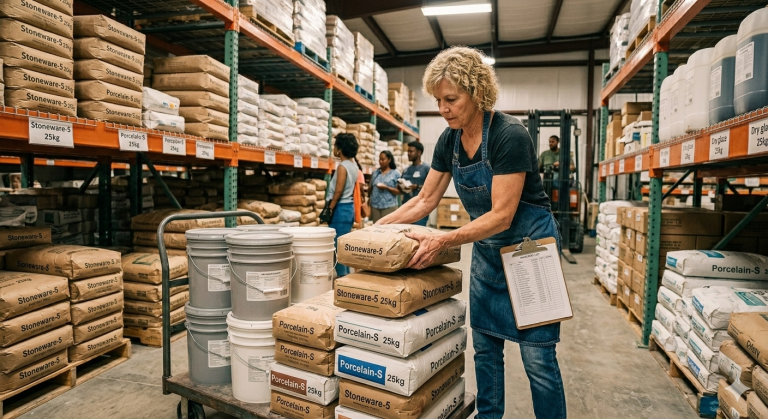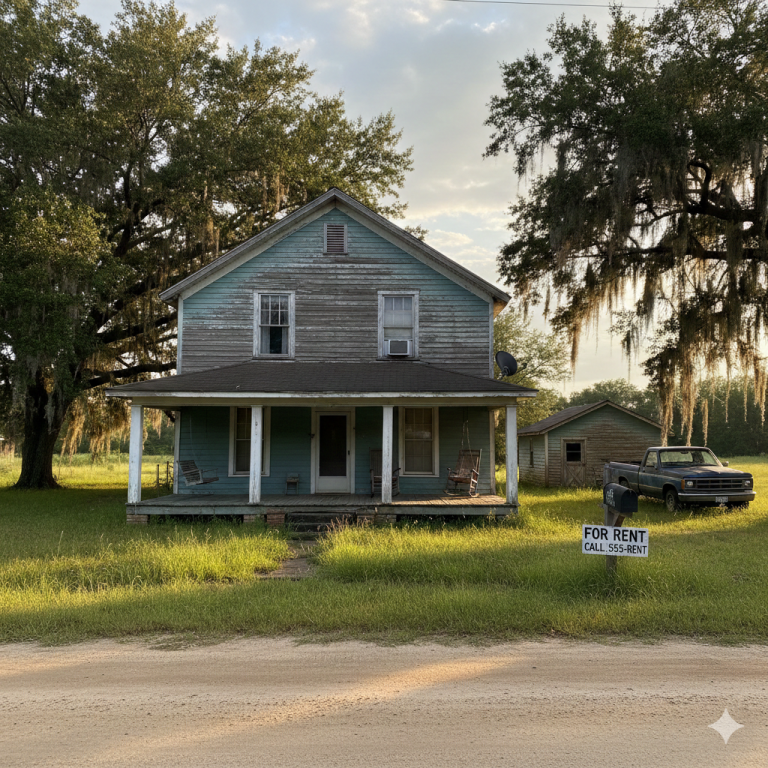Contributing Author & Editorial Review
This article was authored and professionally reviewed to provide accurate, actionable financial insights.

GHC Funding
Contributing Author
Alyssa writes about real estate investing, debt-free strategies, and emerging trends in small business finance with a focus on practical insights.

Samantha Reyes
Senior Content Editor
Samantha specializes in editorial strategy, compliance review, and refining complex finance topics into accessible, reader-friendly guidance.
SBA 7(a) & 504 Highlights
- Loan amounts from $100,000 up to $15 million+ (program-dependent).
- Up to 90% financing for eligible acquisitions, real estate, and equipment.
- Use funds for working capital, refinance, expansion, and partner buyout.
- Longer terms (up to 25 years on real estate) to keep payments manageable.
Small Business Loans in Chicago, IL: Business Lines of Credit & Working Capital Guide for 2025
Chicago, the third-largest city in the U.S. and the heart of the Midwest’s business ecosystem, is home to over 100,000 small businesses. As momentum builds in Chicago’s diverse neighborhoods—from The Loop to West Loop, River North, Hyde Park, Lincoln Park, Pilsen, Bronzeville, and Wicker Park—local entrepreneurs increasingly turn to business lines of credit and working capital loans to power their operations, growth, and resilience. This guide explores Chicago’s top working capital solutions, how to qualify, local lender options, loan terms for 2025, and critical city-specific economic factors.
- Small Business Loans in Chicago, IL: Business Lines of Credit & Working Capital Guide for 2025
- Understanding Business Lines of Credit & Working Capital Loans
- Chicago’s Leading Local Lenders & Credit Unions
- Chicago Economic Climate & Business Opportunities in 2025
- Terms, Interest Rates & Qualification Criteria
- Application Process & Approval Timelines
- Case Studies: Chicago Businesses Using Working Capital & Lines of Credit
- Key Chicago Business Resources & Support Centers
- Other Small Business Loan Options Available in Chicago (2025)
- City and State Business Incentives & Economic Development Initiatives
- Challenges & Solutions: Securing Working Capital in Chicago
- Step-by-Step: Applying for a Business Line of Credit or Working Capital Loan in Chicago (2025)
- Chicago Small Business Lending Market: Data & Outlook for 2025
- Conclusion
Understanding Business Lines of Credit & Working Capital Loans
A business line of credit (LOC) offers flexible access to funds—borrow what you need, repay, and borrow again up to a set limit. Working capital loans, meanwhile, provide lump-sum financing designed to cover ongoing operating expenses, payroll, inventory, or short-term cash flow needs. In 2025, Chicago’s competitive lending market features both traditional and innovative options, many tailored for the city’s fast-moving economy.
How Lines of Credit & Working Capital Loans Work
- Revolving access: Draw funds as needed, pay interest only on what you use.
- Flexible terms: Shorter terms (6-24 months) are common; extended working capital loans may reach up to 5 years.
- Use cases: Inventory purchases (Lincoln Park boutiques), bridging slow receivables (River North creative agencies), covering payroll during seasonal dips (Wicker Park restaurants), or funding marketing campaigns (Pilsen tech startups).
- Loan amounts: In Chicago, lines of credit usually range from $25,000 to $500,000; working capital loans from $10,000 to $1,500,000.
Chicago’s Leading Local Lenders & Credit Unions
For 2025, Chicago entrepreneurs can access lines of credit and working capital from a mix of national banks with regional operations and locally owned institutions:
Need capital? GHC Funding offers flexible funding solutions to support your business growth or real estate projects. Discover fast, reliable financing options today!
⚡ Key Flexible Funding Options:
GHC Funding everages financing types that prioritize asset value and cash flow over lengthy financial history checks:
DSCR Rental Loan
- No tax returns required
- Qualify using rental income (DSCR-based)
- Fast closings ~3–4 weeks
SBA 7(a) Loan
- Lower down payments vs banks
- Long amortization improves cash flow
- Good if your business occupies 51%+
Bridge Loan
- Close quickly — move on opportunities
- Flexible underwriting
- Great for value-add or transitional assets
SBA 504 Loan
- Low fixed rates through CDC portion
- Great for construction, expansion, fixed assets
- Often lower down payment than bank loans
🌐 Learn More
For details on GHC Funding's specific products and to start an application, please visit our homepage:

- Wintrust Bank – Large regional lender with robust LOC products for businesses.
- Byline Bank – Headquartered in Chicago; strong focus on small and midsize business financing.
- Chase Bank – Major lines of credit presence, especially for Chicago-area businesses.
- PNC Bank – Offers both secured and unsecured LOC to businesses throughout Chicago.
- Fifth Third Bank – Popular for fast-access working capital solutions.
- Alliant Credit Union – Chicago-based, with competitive business lines of credit for members.
- Self-Help Federal Credit Union (Chicago branch) – Focuses on community businesses and neighborhood startups.
- North Side Community Federal Credit Union – Offers specialized products for underbanked and minority-owned businesses.
Contact:
- Wintrust Bank – www.wintrust.com/business | (888) 494-6428
- Byline Bank – www.bylinebank.com | (773) 244-7000
- Chase Business Banking – (312) 732-1164, Chase Branch Locator
Chicago Economic Climate & Business Opportunities in 2025
Chicago’s economy is projected to grow 2.1% in 2025, outpacing much of the Midwest. Major sectors include professional services, manufacturing, logistics, tech, health care, and hospitality. The city’s Small Business Improvement Fund (SBIF) and Neighborhood Opportunity Fund continue to help local businesses renovate, expand, and stay competitive in top districts:
- The Loop & West Loop: Financial, tech startups, restaurants
- Pilsen & Bronzeville: Creative industries, retail, art galleries
- Lincoln Park & Lakeview: Fashion, boutique stores, health/fitness
- River North: Marketing firms, event spaces, creative studios
- Wicker Park: Cafes, bars, design studios, music venues
In 2025, access to working capital is key for businesses adapting to Chicago’s evolving neighborhood dynamics, rising rents, and ongoing talent recruitment needs.
Terms, Interest Rates & Qualification Criteria
- Interest rates (2025):
- Business Lines of Credit: 8.25% to 17.5% APR (prime + 1-8%, depending on credit and collateral)
- Working Capital Loans: 9.5% to 19% APR (Chicago averages slightly higher than national)
- Term lengths: 6-24 months for LOC; 1-5 years for lump-sum working capital loans
- Credit score needed: Generally 660+, though some community lenders consider 625
- Time in business: 12+ months preferred; some lenders now offer starter programs for startups with less than one year in operation (higher rates/shorter terms apply)
- Annual revenue: Minimum $100,000 for traditional banks; some local CDFIs start at $50,000
- Collateral: Unsecured LOC possible (higher rates); secured lines backed by accounts receivable, inventory, or real estate available at lower rates
Application Process & Approval Timelines
- Choose lender: Compare national, community, and credit union offerings. Check reputable online lenders (e.g., Kabbage, OnDeck) as alternatives.
- Prepare documents: Recent tax returns, bank statements, business financials, copy of lease, ownership information, and Articles of Incorporation (if applicable).
- Apply online or in-person: In-person appointments often available at neighborhood branches; digital applications for fast processing.
- Approval: Credit unions and community lenders: 3-7 business days. Megabanks: 3-10 business days. Online lenders: As fast as 24-72 hours.
- Funding: LOC drawdowns typically available within 1-2 business days of approval.
Case Studies: Chicago Businesses Using Working Capital & Lines of Credit
- Case 1: West Loop Eatery
A popular farm-to-table restaurant in West Loop faced seasonal dips in traffic each winter. By securing a $150,000 line of credit through Byline Bank, they managed payroll, purchased local produce, and launched a winter specials campaign. Increased cash flow stability led to a 20% uptick in off-season bookings. - Case 2: Pilsen Design Collective
An interior design firm in Pilsen obtained a $40,000 working capital loan from North Side Community Federal Credit Union to support a large client’s project upfront and cover overhead until payments were received. The project’s success landed them several referrals. - Case 3: Lincoln Park Fitness Studio
A boutique gym in Lincoln Park used a $60,000 line of credit from Wintrust Bank to bridge cash flow while expanding to a second location. The flexibility to draw as needed kept training programs running without interruption. - Case 4: Bronzeville Retail Startup
A minority-owned retail startup in Bronzeville leveraged a $25,000 working capital loan via Self-Help Federal Credit Union and matched it with a grant from the Chicago Neighborhood Opportunity Fund. This two-tiered support financed initial inventory and a marketing blitz, driving strong opening month sales.
Key Chicago Business Resources & Support Centers
- SBA Illinois District Office – (312) 353-4528 | SBA Chicago Office
- Chicago SCORE – Free small business mentoring at chicago.score.org | (312) 353-7724
- City of Chicago Department of Business Affairs & Consumer Protection – Licensing, programs, and support: (312) 744-2086
- Women’s Business Development Center – Training and funding for women-owned businesses: (312) 853-3477
- Chicagoland Chamber of Commerce – Advocacy, events, and small business resources: (312) 494-6700
Other Small Business Loan Options Available in Chicago (2025)
- SBA 7(a) Loans & 504 Loans – Up to $5 million for working capital, property, or equipment; lower rates but longer approval.
- Equipment Financing – For tech, manufacturing, & medical firms throughout Fulton Market, West Loop.
- Commercial Real Estate Loans – For expanding or acquiring retail, industrial, or office property in districts like River North, South Loop, and Hyde Park.
- Invoice Factoring – For businesses with slow-paying clients, especially B2B and service firms in downtown.
- Merchant Cash Advances – Fast, high-cost cash for retail/hospitality in tourism-driven neighborhoods like The Loop, Gold Coast.
- Startup Funding – CDFIs and city grants (e.g., SBIF, NOF) offer supplementary capital to new ventures.
City and State Business Incentives & Economic Development Initiatives
- Small Business Improvement Fund (SBIF) – Grants up to $150,000 for property improvements in targeted districts.
- Neighborhood Opportunity Fund – Direct grants for businesses opening or expanding on Chicago’s South and West Sides.
- Illinois Advantage Illinois Loan Participation Program – Reduces lender risk, expands access to working capital.
- City of Chicago TIFWorks Program – Workforce training grants for businesses in tax increment financing (TIF) districts.
Challenges & Solutions: Securing Working Capital in Chicago
Common Challenges:
- Seasonal cash flow issues (especially in hospitality/retail)
- High collateral / revenue requirements from major banks
- Long approval times with traditional lenders
- Neighborhood funding disparities (South/West Side businesses often face more hurdles)
Solutions:
- Work with local CDFIs and credit unions
- Combine lines of credit with city grant programs
- Utilize business mentoring through SCORE or chamber events for guidance
- Explore online lenders for faster access (but read terms carefully)
Step-by-Step: Applying for a Business Line of Credit or Working Capital Loan in Chicago (2025)
- Assess your need: How much do you need—and for what purpose?
- Check your credit: Pull your business and personal credit reports.
- Shop local: Contact multiple lenders—include at least one credit union or CDFI from our list above.
- Gather documents: Last 2 years’ tax returns, recent bank statements, current debt schedules, business/marketing plan.
- Apply: Online or in-branch. Ask about pre-approval for lines of credit to better understand your range.
- Prepare for follow-up: Be available for lender questions and requests for additional info.
- Review terms: Compare rates, draw fees, repayment schedules, and flexibility. Accept the offer that fits your growth strategy and cash flow.
- Draw funds as needed: Keep careful records and make timely payments to build credit for future expansion.
Chicago Small Business Lending Market: Data & Outlook for 2025
- Average LOC application approval rate (2024): 64% (projected to rise slightly in 2025).
- Median business loan size (Chicago, 2025): $120,000.
- Top industries awarded LOC/working capital: Professional services, healthcare, wholesale/retail, food service.
- Growth sectors: Tech startups (West Loop), gig economy (Pilsen), light manufacturing (South Side).
Get a Free Rate Today
Compare our top-rated commercial and investment property loan programs below.
- No income verification
- 30-year fixed | Interest-only available
- Great for rental properties + STR
- Fast approvals
- Working capital + business acquisition
- Up to $5M
- Low down payment
- Long-term financing
- Owner-occupied CRE
- Low fixed rates | 25-year terms
- Great for business expansion
- Refinance available
- Best for stabilized properties
- Competitive rates
- 12–25 year terms
- Lower fees than private lenders
Compare Loan Types
Find the Right Financing for Your Real Estate or Business Project
| Loan Type | Best For | Rates | Terms | Highlights | Apply |
|---|---|---|---|---|---|
| DSCR Loan | Rental properties (LTR & STR) | 5.99%+ | 30-year fixed, IO options | No income docs, fast approvals, great for investors | Check My Rate |
| Construction Loan | Ground-up, fix & build, major renovations | 8%–12% depending on scope | 12–24 months interest-only | Flexible draws, great for builders & developers | Get a Quote |
| SBA Loan | Business acquisition, working capital, CRE | Prime + spread | 10–25 years | Lowest down payments, long terms, best for business growth | See My Options |

The Funding Options for New Entrepreneurs Now
Discover diverse funding options for new entrepreneurs to escape corporate life and launch your business successfully.
Read more →
The SBA 7(a) vs 504 Loan in Mississippi Now
GHC Funding Website Published: March 3, 2026 Categories: blog Reading Time: 3 minutes read Understanding SBA 7(a) vs 504 Loans: What Mississippi…
Read more →
Get a DSCR Loan Calculator in Mississippi Now
GHC Funding Website Published: March 3, 2026 Categories: blog Reading Time: 3 minutes read Understanding DSCR Loan Calculators with Taxes and Insurance…
Read more →
Get a Construction Loan in Mississippi Now
GHC Funding Website Published: March 3, 2026 Categories: blog Reading Time: 3 minutes read How to Get a Construction to Permanent Loan…
Read more →
How to Start a Business with No Money
Discover how to start a business with no money and escape the corporate grind with actionable tips and strategies.
Read more →
SBA Loan Requirements for Startups in Mississippi Now
GHC Funding Website Published: March 3, 2026 Categories: blog Reading Time: 4 minutes read SBA Loan Requirements for Startups in Mississippi: A…
Read more →Conclusion
Whether you’re a startup in Pilsen, a family-owned eatery in West Loop, or a burgeoning health clinic in Bronzeville, accessing a flexible line of credit or working capital can be the difference between stagnation and growth in 2025. Chicago’s rich ecosystem of banks, credit unions, development centers, and city-backed programs ensures that businesses from every neighborhood have pathways to thrive. Start with a lender that understands your neighborhood, leverage city incentives, and tap into mentoring and resources to secure working capital and scale your Chicago business this year.
Get a No Obligation Quote Today.
Use these trusted resources to grow and manage your small business—then connect with GHC Funding
to explore financing options tailored to your needs.
GHC Funding helps entrepreneurs secure working capital, equipment financing, real estate loans,
and more—start your funding conversation today.
Helpful Small Business Resources

